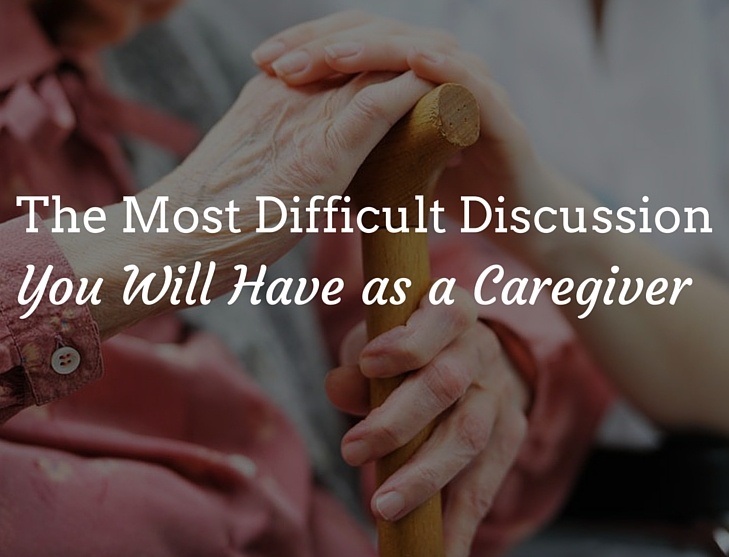
End-of-life care is often treated as a taboo topic, but it may be one of the most important conversations you will ever have with a loved one.
We are not taught how to deal with the reality of life's endings; the focus is normally on beginnings, milestones, or other celebrations. But the end of life is as natural, and no less important, than any other stage or phase of life. And it’s time that we begin to acknowledge the importance of confronting the issue of hospice and end-of-life care—before such decisions must be made.
A Few Facts about End-of-Life Decisions
According to a California study, though a vast majority of people report that they believe it is important to put end-of-life decisions in writing and know that talking with loved ones about end of life care is important, few have taken action.
-
Less than half of all seniors surveyed had communicated their final wishes.
-
27 percent had actually talked with their loved ones.
-
23 percent had committed their directives to writing.
-
Only 7 percent have had the pertinent discussion with doctors.
Though 60 percent of seniors say that it is "extremely important" that family not be burdened with final decision-making, the fact is that a majority of American seniors have failed to communicate their final wishes to caregivers, physicians, and family.
Initiating and Communicating
Dying, in our culture, has somehow joined the short list of topics that should never be discussed in polite conversation, right alongside religion, politics, and money. In 2010, however, a group of colleagues joined with medical professionals, clergy and media to launch The Conversation Project—which has become the premier advocate of the need to confront end-of-life care, assuring that dying can be done in conformance with individual beliefs, wishes and values. The project offers a way to move beyond fear and uncertainty. Founder Ellen Goodman expresses the goal by affirming that it's better to talk "around the kitchen table" than in the intensive care unit.
How to Begin
This senior healthcare conversation is not so much about critical procedures and emergency situations as it is about the specifics of palliative care, pain relief, and physical location at the end of life. It is about what happens after an emergency, about the right time to "go home from the hospital," how much care and what types of pain relief are necessary, and, finally, it is about where to breathe those last breaths, how and with whom. They are difficult topics. But the decisions are even more agonizing for loved ones with no direction.
The Conversation Project has made a downloadable Starter Kit available to make the process easier for families, but it’s helpful to remember two things:
-
There are no wrong answers.
-
The more you talk, and the more people you talk with, the more comfortable you will be.
Cultural identity and religious beliefs will, of course, play an important role in these decisions. But if there is no urgency, you and your parents can continue the conversation over time— for months or even years—and specific wishes can be formalized in writing, in the form of a "living will," medical directives, and medical power of attorney documents.
A Few Final Considerations
If you are concerned with the quality of senior healthcare options in an end-of-life situation, have an honest conversation with your parents and their physician. If your parents are currently under any kind of medical supervision or monitoring, it is imperative that both you and any professional caregivers involved know the limits of what kind of continuing care your parents wish to receive.
Beyond that, make sure that your parents’ retirement home and assisted living personnel are receptive and supportive of any requests, not only as they pertain to emergency treatment and extraordinary procedures, but also in terms of palliative care and hospice assistance.












